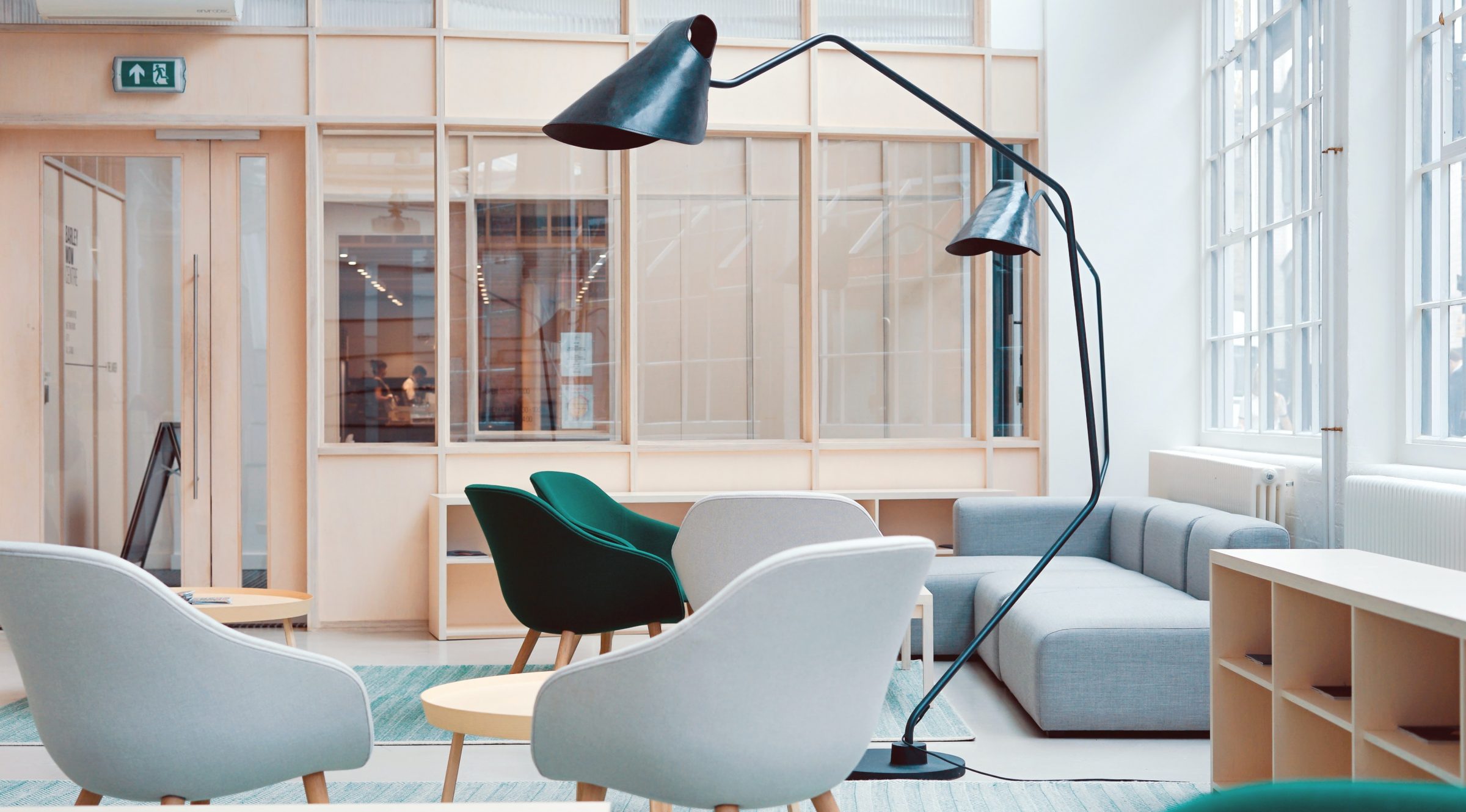Send us a message
Tel: 0203 416 5340



News 11.05.20
Darren Baker was appointed as Head of Security for Workspace Group in 2016 and has changed the way the company think about and implement security as a whole. We spoke candidly with him about the challenges he has faced and overcome, as a result of COVID-19 and beyond.
Tell us about Workspace and your role as Head of Security within it?
Workspace primarily leases office space, mainly to start-ups but we do have some established big brand names within the business as well. Our properties are usually stand-alone buildings up to 7 floors tall with up to 200 business units within them.
I joined the company 3 years ago when I was brought in to establish and stabilise the security infrastructure within the business – I was working as Head of Investigations for a major supermarket chain before. The primary risk to us is burglary and criminal damage during out-of-hours activity – I am the only in-house security person and we outsource everything else. We use Vigilance to supplement our needs with short-notice and temporary guarding when we have a heightened risk of threat due to protestors or even lockdown.
What services does Workspace offer and why is security such an important element?
Workspace offers businesses the chance to build a community and culture within the building by offering cafes (which are also open to the public) and breakout spaces for the businesses to share and meet others. We also offer meeting room rentals and we have ‘Club Workspace’ which is a hot-desking solution that gets you access to a working area, tea & coffee, WiFi and a community hub where you get to talk to other startups. Security plays a major part in the offering as people want to know their businesses are safe when so many people are moving around the building.
Workspace Group has over 60 properties across London. Is there anything unique about any of the properties that either helps or hinders the implementation of security?
The vast majority of our estate are historical buildings that we convert - for example Parma House used to make Parma Violet sweets! We also own Biscuit Factory and a factory that used to make Bassetts Liquorice Allsorts, even a factory that used to make exhaust pipes, so it’s a real mix. The challenge with that is the old infrastructure of the buildings. The biggest issue for us is when we buy something and it's listed - for example, Leather Market in Borough is a stunning property but all the doors are listed so trying to secure them and make the building safe without breaching those covenants is rather challenging.
How has COVID-19 affected Workspace as a company, both directly and indirectly?
Directly, we’ve had to shut all our buildings down – technically, the only people that are allowed inside the building are essential workers. Some of our centres do have those, for example we have an online pharmacy and we have some software solution developers that work with the NHS and the police, so there are still a number of businesses operating across our centres but 99% of the spaces are shut down.
What sort of challenges have you come across during the outbreak and how has Workspace adapted to these challenges in response?
We’ve had to implement an out-of-hours process during day-time – essential workers have been given a password which changes frequently, they then have to concierge through to the Remove Video Response and present the password and they will be allowed through. We’ve had to switch off the biometrics (fingerprint technology) as nobody wants to touch anything in a public space given the current situation. We’ve also had to add additional manpower in centres that I know from history are at high risk of criminal offences.
In security terms, are there unique features and requirements specific to this outbreak, or is this something that already sits within the operating model?
Shutting our buildings down during working hours Monday-Friday is hugely unique to this situation – going from a daily footfall of around 40,000 people to 1,000 coming through our estate is a huge impact. Our business model will change significantly as a result, probably for the next couple of years or so.
What are the biggest challenges you face within your role on a day to day basis? Are there challenges you feel are exclusive to your industry?
Clear communication is the biggest challenge – because we have a lot of contractors, and subcontractors, having those personal relationships with the contract managers is really important.
How do you adapt to this challenge to remain successful?
I want all of those people to feel like part of the team and to feel like they work for Workspace, so I like to meet all of the guards and mobile guards and provide them with branded uniforms so that they look like they work for Workplace security even if they are subcontracted to do so. Keeping up communication ensures you get a far better buy in and a far greater commitment from them – this is my security strategy, it’s how we retain people within the business and get to keep the best of the best.
Do you see any new challenges emerging over the next few years due to potential trends that may develop?
I think there are issues with SIA (Security Industry Association) licensing – I don’t think it is fit for purpose so I see this becoming a big issue in the future. I believe everyone should be SIA licenced, however only front line guards get licensed. This potentially means you could employ a contract manager who has a criminal background – you just don’t know if they don’t have a license.* Another challenge I see emerging is within biometrics – it is a huge opportunity, but people are very sceptical of things like facial recognition. Also the issue of fingerprints in the current environment – this is about to become a huge challenge because people are very much less amenable to touching stuff – I think we are heading into a very different world.
*Vigilance recognises this issue and actively insists that all staff employees take the training and hold a valid SIA licence, from our most senior directors, all the way down to our sales and customer services team. It's not just for our frontline staff. The only person without an SIA licence is our chartered accountant! - Ed.
Is there any advice you would give to someone looking to get into security within the commercial property industry?
If you’re a security officer on shift, find something to do – keep mobile or active and ensure you are working for a solid company with a good reputation.
If you are in security management, or looking to get into security management, your work experience is not enough - you must gain some formal qualifications. Just because you’ve been a security officer for 5-10 years does not automatically make you a manager.
In broad terms, can you give some information on how Workspace has integrated technology when it comes to security on the estate?
We’re moving towards giving our customers a multiple choice of credential types to gain easy access to the buildings – that could be a card, fingerprint, virtual token on their mobile phone – kind of like a QR code. We’re hoping this will come into play within the next 6 months. Customers won’t need to provide us with any extra information – we will pull it from their contracts from a central database and it will be uploaded into the new system. It’s all about using technology to make our customer experience as smooth as possible whilst maintaining security.
How does technology compare to physical manpower when it comes to security? How do they work together and is there a need for both?
There’s absolutely a need for both – either can go wrong at any one time. Generally, I would have technology first and foremost and then manpower to support that technology – however, if you haven’t got a physical person to be there to react to what the technology is telling you, there is no point – I could have 6 alarms going off and cameras recording the break-in but if there is no one there to deal with it, what’s the point of the alarms? You need a truly integrated solution – a combination of technology and people working together in harmony to succeed.

© Vigilance Properties Limited 2026. Registered in England & Wales under company registration number 06682999. Vat No. 939424007